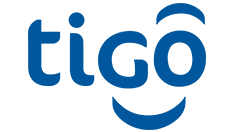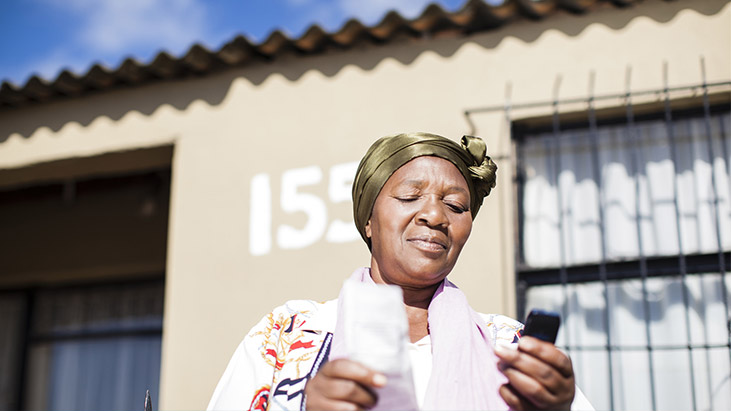TIGO TANZANIA CASE STUDY
Seamless transition to faster service
In Tanzania, Telepin transparently replaced an existing mobile money platform and helped Tigo Tanzania drive revenue growth.

The Players
Owned by Luxembourg-based mobile telecommunications pioneer Millicom International Cellular, Tigo Tanzania is the country’s second-largest mobile services provider, with more than seven million customers. Formerly known as Buzz, Tigo Tanzania has its roots in the 1993 liberalization of the country’s telecommunications sector and a joint venture between Millicom, Ultimate Communications Limited of Tanzania and the government’s Tanzania Posts and Telecommunications Corporation. In 2014, Tigo Pesa became the first mobile money service in Africa. It can be used to pay bills for recurring services like electricity, buy airtime, purchase goods from merchants, and send and receive money. Many companies and government entitities use is to make bulk payments directly into users’ wallets. A separately branded service, Zoop, facilitates school payments through the Tigo Pesa app.
Download PDF Version
Telepin doubled Tigo Tanzania’s transactions per second, and provided them with a platform that can support their growth.
The Challenge
Telepin was selected to replace Tigo Tanzania’s incumbent mobile money services provider less than a year after Tigo Pesa was initially introduced. The initial challenge was to implement a seamless transition to the new Telepin Mobile Money platform. Because Telepin’s interface is substantially different than its predecessor’s, the company had to collaborate closely with Tigo Tanzania, more than 100 so-called “billers,” and more than 20 banks.
“We changed our APIs to accommodate the banks and the billers,” said Eric Feeley, Telepin’s chief technology officer. “That was challenging, just because of the number of billers and banks that were active.”
A related challenge was ensuring that Tigo Tanzania’s operations team was comfortable with new web interfaces.
The hope is that this initial introduction will entice families to engage with mobile banking more generally, giving them the incentive and the resources to improve their financial literacy and, as a result, their stability. This hasn’t always been easy in rural areas, where banks have rarely or never been accessible; families are used to subsisting without institutional structure, and many don’t see the need to change. That’s where the idea of linking solar electricity to mobile banking began. It ties an abstract notion (using a phone to manage money) to a meaningful, concrete outcome (giving your children better lighting for their homework, or your kitchen better tools for cooking).
“People are always reticent about change,” said Feeley, “so there was a lot of uncertainty that we had to overcome.”

The Solution
The goal for Telepin was to seamlessly migrate some 13 million accounts, producing about 100 transactions per second, from the existing platform to Telepin’s Mobile Money platform, and lay the foundation for a wide range of new features that Tigo Tanzania could offer.
Moving into any new geographic territory means understanding new ways of working, and adjusting to a different culture and regulatory regime.
The Telepin team began with the basics: Understanding the mobile money service that Tanzanians were already using.
“Our people on the ground there used Tigo Pesa to understand what people were doing with it,” said Feeley. “In their apartment, the Telepin employees used Tigo Pesa to make their electricity payments, just to understand it better. That really helped.”
During the first three months, it was imperative to demonstrate the advantages of the Telepin Mobile Money platform, so the team from Tigo Tanzania employees who were not directly involved in the decision to switch platform providers would be comfortable with the change. Telepin’s team accomplished this by getting their Tigo Tanzania counterparts to use the platform on a test site, so they could clearly see all the features and benefits firsthand.
Telepin’s Tanzania team also thoroughly documented every aspect of the implementation to ensure a smooth exchange if anyone left the project from either side. Another winning aspect was Telepin’s approach to prioritizing each phase of the transition, and how Tigo Tanzania could introduce new services once the platform was in place.
“When we presented our case to Tigo Tanzania we showed them how our platform could help increase the services they offer and grow their customer base,” said Feeley. “More services and more customers means more revenue for them; we can demonstrate our success doing this in other regions, so we got the client.”
Once the service was cut over to the Telepin platform—in September 2015—an operations manager remained on the ground in Tanzania to ensure that teams were thoroughly trained. In daily meetings, this manager demonstrated the nuances of Telepin’s platform, and triaged issues that arose; issues that could either be addressed directly or assigned to team members at Telepin’s headquarters. Following the departure of the operations manager, after six months, two Telepin employees remained on the ground, to address daily support issues.

The Results
“We won this sale with Tigo Tanzania because our reputation in the market is for having a stable platform,” said Feeley. “We can support high transactions per second, and that was Tigo’s goal. We have doubled their transactions per second, and provided them with a platform that can support their growth.”
The transition from the previous platform supplier to Telepin was transparent to users. The Tigo Pesa user experience looked the same, but people reported a significant increase in speed.
“For the end-user, nothing changed,” said Feeley. “They were still seeing the Tigo Pesa platform, but they said things like, ‘Oh, Tigo has become faster now, more responsive. We can do this or that in a faster manner.’”
After one year with Telepin, Tigo Tanzania reported a 30-percent increase in revenue from mobile financial services and an 18-percent increase in the Global System for Mobile Communications user base.
 Powered By Telepin: Tunisie Telecom Revolutionizes Its Charging System - Read More
Powered By Telepin: Tunisie Telecom Revolutionizes Its Charging System - Read More